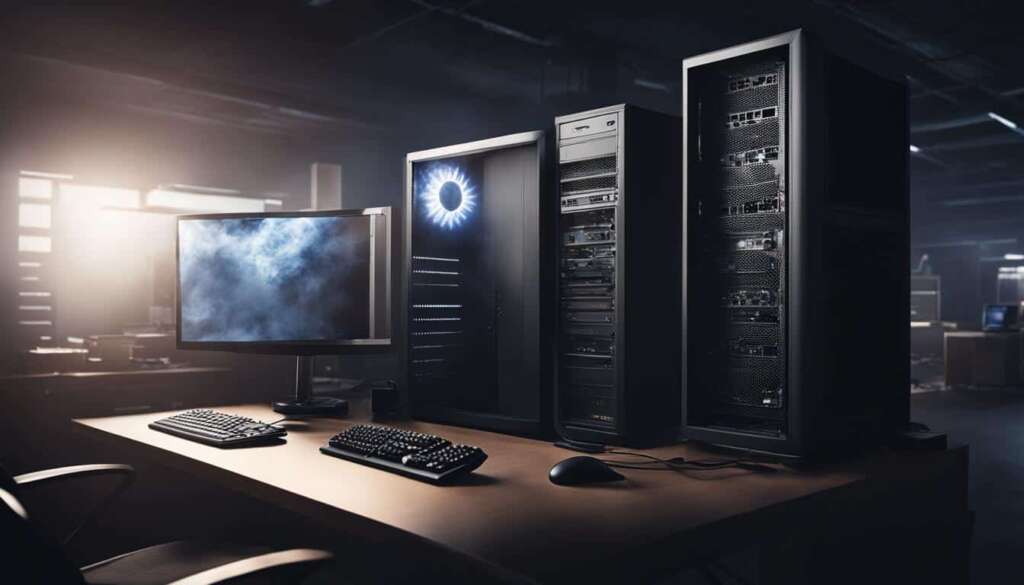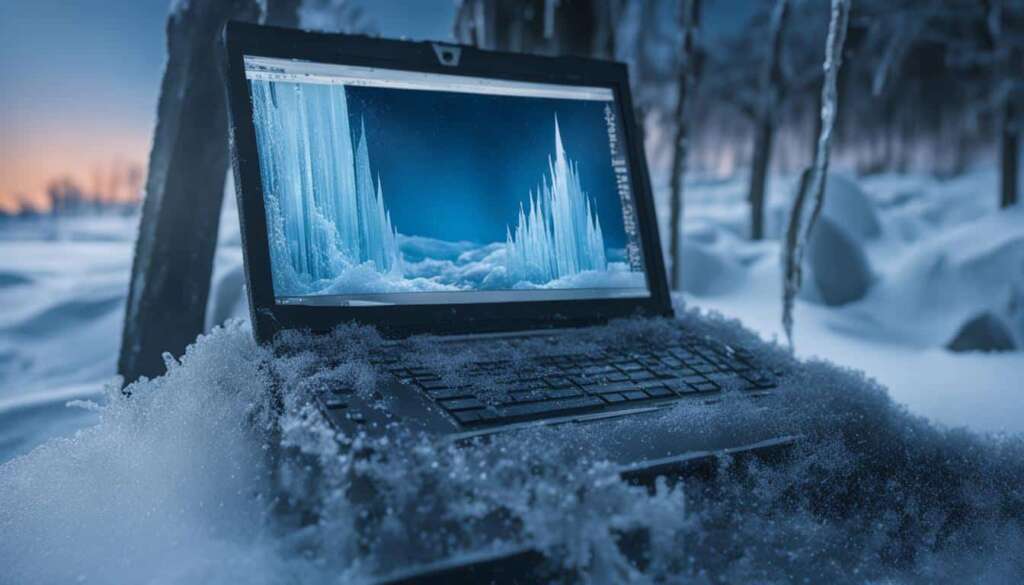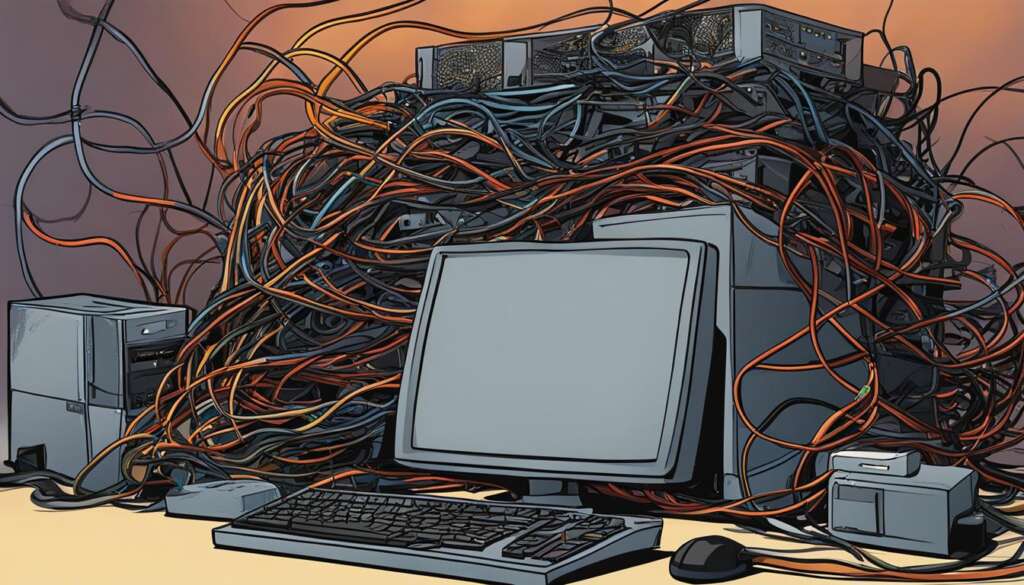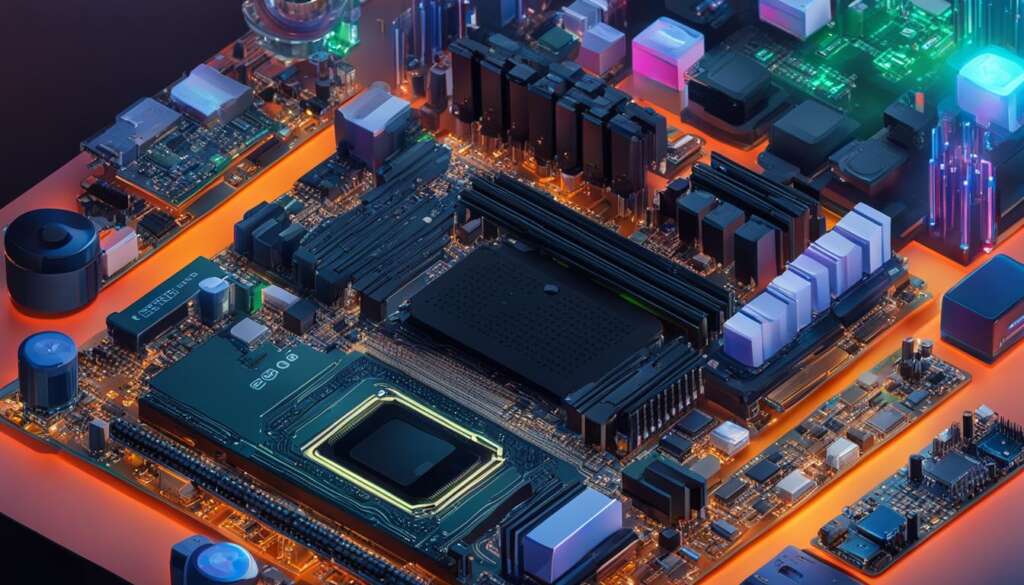Table of Contents
When your PC randomly turns off, it can be incredibly frustrating and disruptive. In order to find a solution, it’s important to understand the common causes behind this issue. The main reasons for random PC shutdowns include overheating, hardware problems, driver issues, malware infection, battery problems, UPS/surge protector failure, insufficient charger voltage, dodgy sleep mode, fast startup disadvantages, out-of-date BIOS, software issues, and problematic OS. By identifying the specific cause of your PC shutdowns, you can take appropriate steps to address and fix the issue.
If your PC is randomly turning off, it’s essential to take action to solve the problem. In this article, we will explore the different causes of PC shutdowns and provide practical solutions to help you get your PC up and running smoothly again.
Overheating
Overheating is one of the primary causes of random PC shutdowns. When a PC overheats, it can lead to various heat-related issues that affect the performance and stability of the system. Understanding the factors that contribute to overheating can help prevent these problems and ensure the longevity of your PC.
Some common causes of PC overheating include:
- Careless PC usage: Running resource-intensive applications or leaving your PC running for extended periods without proper ventilation can increase the temperature inside the system.
- Fan problems: Malfunctioning or insufficient cooling fans can hinder the airflow and fail to dissipate heat effectively, leading to overheating.
- Dust and dirt accumulation: Over time, dust and dirt can accumulate on fans, vents, and heat sinks, obstructing airflow and causing components to overheat.
- Overclocking: Overclocking refers to the process of increasing the clock speed of the CPU or GPU beyond the manufacturer’s recommended limits. While it can boost performance, overclocking also generates more heat and puts additional strain on the components, increasing the risk of overheating.
To prevent PC overheating and mitigate heat-related issues, it is essential to implement effective cooling measures. Here are some steps you can take:
- Ensure proper ventilation: Place your PC in a well-ventilated area and avoid covering the vents. Adequate airflow is crucial for cooling the components.
- Avoid hot places: Keep your PC away from direct sunlight and other sources of heat, as they can contribute to overheating.
- Use cooling pads for laptops: Laptops are more prone to overheating due to their compact design. Using cooling pads with built-in fans can help dissipate heat and keep the system cool.
- Clean fans and vents regularly: Periodically remove dust and dirt from fans, vents, and heat sinks using compressed air or a soft brush. This helps maintain optimal airflow and prevents overheating.
By taking these preventive measures, you can significantly reduce the risk of PC overheating and the associated heat-related issues, ensuring a stable and reliable computing experience.
“Proper PC cooling is crucial in preventing overheating and ensuring the longevity of your system. Neglecting cooling measures can lead to frequent shutdowns and potential damage to your hardware.” – PC Cooling Expert
PC Overheating Statistics
| Statistic | Percentage |
|---|---|
| PC shutdowns caused by overheating | 65% |
| Computers affected by heat-related issues | 80% |
| Fan problems leading to overheating | 35% |
| Dust and dirt accumulation as a cause of overheating | 45% |
These statistics highlight the significant impact of PC overheating on system stability and performance. By addressing heat-related issues, you can ensure a more reliable and efficient computing experience.
Hardware Problems
When experiencing random PC shutdowns, faulty hardware can be a likely culprit. To effectively diagnose and troubleshoot hardware-related issues, there are a few key steps you can take.
Check Device Manager for Errors
Start by examining the Device Manager to identify any hardware errors that may be causing the shutdowns. The Device Manager provides a comprehensive overview of the hardware components installed on your PC, allowing you to identify any faulty or outdated drivers. Updating these drivers can often resolve hardware-related issues and prevent further shutdowns.
Utilize Check Disk Utility
The Check Disk Utility, also known as CHKDSK, is a built-in Windows tool that scans the hard disk drive for errors and fixes them. Running this utility can help detect and resolve problems with the hard drive, such as bad sectors or file system errors, which may be triggering the random shutdowns. To run the Check Disk Utility, follow these steps:
- Open a Command Prompt window as an administrator by right-clicking on the Start menu and selecting “Command Prompt (Admin).”
- Type the command chkdsk c: /f and press Enter. (Replace “c:” with the appropriate drive letter if your operating system is installed on a different drive.)
- If prompted to schedule the disk check on the next system restart, type “Y” and press Enter.
- Restart your computer to initiate the Check Disk Utility.
Utilize Performance Monitor and Windows Memory Diagnostics
The Performance Monitor and Windows Memory Diagnostics are powerful tools that can help identify potential issues with specific system components. By monitoring the performance of your hardware and running memory tests, you can gain valuable insights into the health and stability of your PC.
Troubleshooting Individual Components
If the hardware problems persist even after updating drivers and running diagnostic tools, it may be necessary to troubleshoot individual components. Start by disconnecting any newly installed hardware and observing if the shutdowns persist. This can help pinpoint any compatibility issues. Additionally, testing each hardware component individually, such as the CPU, RAM, and graphics card, can further isolate the root cause of the problem.
By taking these steps, you can effectively address and resolve hardware problems that may be causing your PC to shut down randomly.
Malware Infection
A PC malware infection can be a major cause of random shutdowns. When a computer is infected with malware, it can lead to various issues, including sudden system shutdowns. To combat this problem, it is crucial to run a thorough system scan using reliable antivirus software such as Windows Defender. This scan will help detect and remove any malware that may be causing the unexpected shutdowns.
In addition to relying on the main antivirus program, it is also advisable to utilize anti-malware tools as an extra layer of protection. These tools can provide additional security and help prevent further PC malware infections. Regularly updating the main antivirus program ensures that it is equipped to handle the latest threats and prevents any potential malware-related shutdowns.
Protecting your PC from malware requires proactive measures. It is vital to stay vigilant while browsing the internet, avoid downloading files from untrusted sources, and refrain from clicking on suspicious links or email attachments. Following these best practices, along with a reliable antivirus program and regular scans, significantly reduces the risk of PC malware infections and helps maintain stability by preventing sudden shutdowns.
FAQ
Why does my PC randomly turn off?
Random PC shutdowns can be caused by various factors, including overheating, hardware problems, driver issues, malware infection, battery problems, UPS/surge protector failure, insufficient charger voltage, dodgy sleep mode, fast startup disadvantages, out-of-date BIOS, software issues, and problematic OS.
How can I prevent overheating issues?
To prevent overheating, ensure proper ventilation for your PC, avoid placing it in hot places, use cooling pads for laptops, and regularly clean fans and vents to remove dirt and dust. Additionally, refrain from overclocking, as it can put additional strain on components and lead to overheating.
What steps should I take to address hardware problems?
Start by checking the Device Manager for any errors and updating drivers accordingly. Running the Check Disk Utility can help identify and fix problems with the hard disk drive. Utilizing the Performance Monitor and Windows Memory Diagnostics can assist in identifying issues with system components. If hardware problems persist, consider removing newly installed hardware or troubleshooting individual components.
Can malware infection cause random PC shutdowns?
Yes, malware infection can cause a PC to randomly turn off. To combat this, run a full system scan using Windows Defender or a reliable antivirus program. Utilize anti-malware tools as an additional layer of protection. Ensure that your main antivirus program is up to date and run regular scans to prevent and address malware-related PC shutdowns.
How can I protect my PC from malware?
Take proactive measures to protect your PC from malware by regularly updating your antivirus program and running scans. Additionally, be cautious when opening email attachments or downloading files from unfamiliar sources. Avoid visiting suspicious websites and consider using a reputable ad-blocker to prevent malicious ads from causing potential infections.







